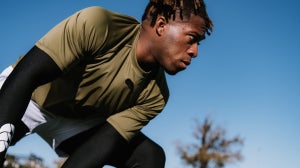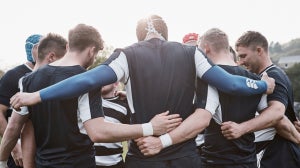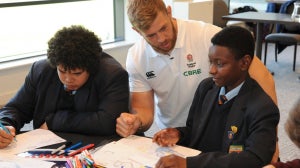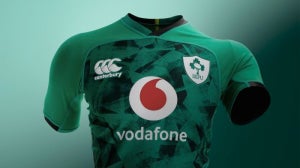
After a hard game of rugby it may seem tempting to sit down after your shower and relax with a cold beer. But while it’s good to rest and sleep later on in the evening, putting your feet up straight after the game is probably the worst thing you can do if you want your body to recover in the shortest possible time.
Elite players have access to expert medical advice and conditioning coaches, but at lower levels, players often miss out on the advice they need to recover quickly and their performance suffers as a result. As a player, you need to adopt an effective post-match strategy that will help you perform at your peak, so here at Canterbury of New Zealand we’ve put together this advice which we hope you will find useful.
According to a study published in the British Journal of Sports Medicine, three strategies are almost equally effective at promoting recovery after muscle damage:
Active recovery – a period of low intensity exercise before the normal post-match routine
Contrast water therapy – alternate immersion in hot and cold baths or showers several times for a minute or two each time prior to the post-match routine
Compression garments – lower body compression garments worn for around 12 hours following the post-match routine.
Test results for these three strategies indicated that recovery was achieved at more than twice the rate than if a player took a passive approach to recovery. Massage and stretching are also invaluable tools in muscle recovery. Massage helps deal with the knotting and scar tissue that extreme exertion causes, while stretching relaxes and realigns muscles, returning them to their normal range of movement.
Of course, this is only part of the equation; post-match nutrition is another vital factor in the recovery process.You’ll also need to take in some proteins and carbohydrates after the game, preferably within about half an hour so that you body gets the greatest benefit. Proteins are important aids to muscle recovery while carbohydrates will help restore your energy levels. A protein drink immediately after the game followed by a dinner of steak, fish or chicken with potatoes and fresh vegetables will see you well on the way to recovery.

Sometimes overlooked is the importance of rehydration after a game and the important role that water plays in muscle recovery. If you weigh yourself after a physically assertive workout you will find that you have lost weight. As a rule of thumb, for every kilogram of body weight lost you should drink about 1.5 litres of water. Provided that you have rehydrated adequately during the game you shouldn’t need too much water afterwards. You don’t have to drink it all at once; you should spread it out over two or three hours after the game.
While these strategies will help you recover after a match or heavy training, remember that everyone is different and you may find that recovery strategies may vary according to position types.
Try compression garments to aid your recovery

Related Articles








